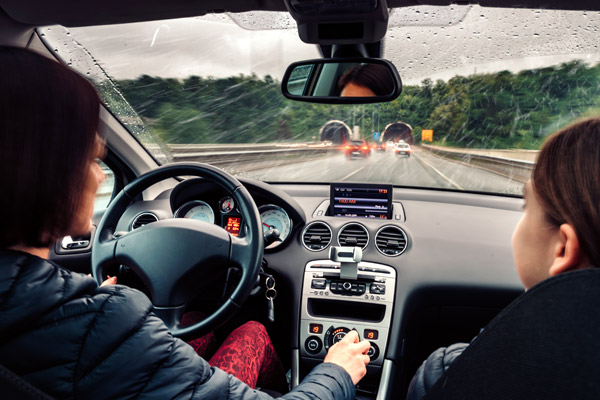Recently Tesla announced plans to remove FM radio – in addition to AM – from its low-cost models. Instead, their customers will have to rely on streaming and paired smartphone audio. But when disaster strikes and internet service goes down, local radio in cars becomes a lifeline – not a luxury. Radio is one of the most reliable, universal ways Americans receive urgent information, and AM radio is the backbone of the emergency alert system.
“When the power is out and cell service is down, AM radio becomes a critical lifeline,” wrote the International Association of Fire Chiefs. “Its long range and ability to operate during power outages, natural disasters and extreme weather events make it an indispensable resource for those in desperate need of reliable updates. As first responders, we can receive news about roads closing, dams breaking, and rescue efforts by tuning into local AM radio stations in our vehicles.”
Automakers like Tesla put profits above public safety when they remove local radio. Vehicles remain one of the primary places Americans listen to radio each day, and during emergencies, over‑the‑air radio saves lives. Streaming over cellular data or internet is vulnerable to network outages and can require subscription fees.
Radio is a local, trusted medium, anchored in communities across America, that responds when emergencies happen and when lives are at stake. Each month, 82 million listeners depend on AM radio to always be on, delivering news, sports, talk, traffic and weather reports they depend on every day.
Lawmakers understand the public safety benefits of radio. That’s why more than 340 senators and House members are supporting the bipartisan AM Radio for Every Vehicle Act, which would require AM radio as a standard safety feature in all new cars. The time is now to pass this critical legislation and protect Americans behind the wheel.
Make your voice heard at Depend on AM Radio.





